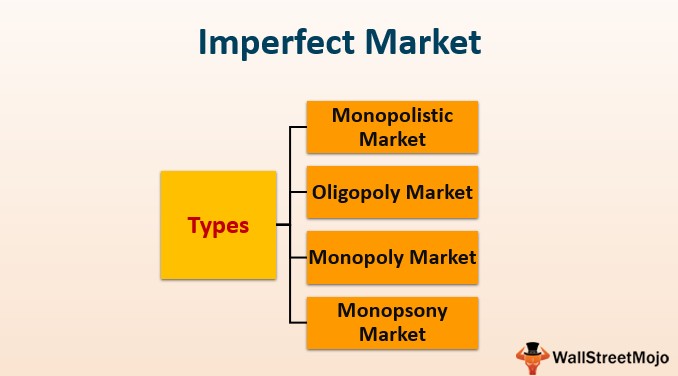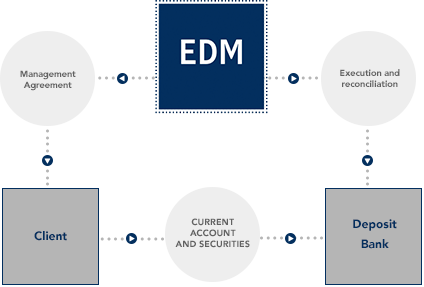
This does not invalidate the well documented true and genuine stories of large successes and consistent profitability of many individual stock investors and stock investing organizations in history. Professional stock traders who work for a financial company are required to complete an internship of up to four months before becoming established in their career field. In the United States, for example, internship is followed up by taking and passing a Financial Industry Regulatory Authority-administered Series 63 or 65 exam. Securities and Exchange Commission (SEC) compliant practices and regulation.
- The skills are a combination of technical, analytical, and behavioral qualities.
- Swing trading involves profiting from short- to medium-term price movements in various financial instruments such as stocks, futures, currencies, or commodities.
- Media coverage of these issues has been so prevalent that many investors now dismiss market timing as a credible investment strategy.
- This area of study clarifies the mental and emotional aspects that will dictate a trader’s decision and is an important factor in determining his success or failure in the trading process.
This type of proprietary trading was a factor in the 2008 financial crisis, which subsequently led to new Dodd-Frank regulations and specifically the Volcker Rule. Smaller stockholders may experience proportionally equal changes in their stock market-based assets. Day trading sits at the extreme end of the investing spectrum from conventional buy-and-hold wisdom. For example, a day trader makes many trades throughout the day, focusing on short-term profits. On the other hand, buy-and-hold-style traders look for long-term investments, keeping their investments for potentially years.
A master’s in business administration (MBA) may be an important qualification for higher-level positions at trading firms. Sentiment indicators are based on data comprising trading volume, price movements, and news coverage of financial instruments or markets. Sentiment is also developed through the quantification of surveys or polls. The data helps to gauge the level of optimism or pessimism in the financial markets. Those traders who work for themselves may have a home office or may rent one. If that isn’t the case, traders will have roles in investment banks, brokerage firms, proprietary trading firms, asset management firms, hedge funds, or exchanges.
Stock Trader Definition
Stock traders with experience usually obtain a four-year degree in a financial, accounting or economics field after licensure. Supervisory positions as a trader may usually require an MBA for advanced stock market analysis. Time and effort
Because of the amount of research and transactions it takes, successful trading can be—and often is—a full-time job. Long-term investing, meanwhile, most often takes a set-it-and-forget-it mentality.
- This does not invalidate the well documented true and genuine stories of large successes and consistent profitability of many individual stock investors and stock investing organizations in history.
- The asset class is dependent on the traders’ preference, expertise, and the market in which they operate.
- With the longer-term view, position trading is considered to be less risky than the other short-term trading strategies, as these traders have more time to endure the short-term price fluctuations.
- Day traders care little about the inner workings of the businesses.
- Most entry-level trading jobs require at least a bachelor’s degree, with employers often seeking graduates who have majored in business, economics, and accounting.
- This means they likely will experience all of the ups and downs that the overall market experiences—and unlike traders, they won’t respond in real time to market events hoping to edge out market returns.
Before trading options, please read Characteristics and Risks of Standardized Options. Supporting documentation for any claims, if applicable, will be furnished upon request. For some investments, that can be a substantial portion of their total return, or the percentage their price increases plus the amount they provide from dividends. From 1930 to 2021, dividend income made up 40% of the total return of the S&P 500® index,2 a group of the 500 largest US companies.
A swing trader takes more time to monitor stocks while evaluating the opportunities available. Swing traders can hold a position for days with the goal of capturing the majority of a move in a security’s price. Swing traders might study the market for days or weeks before making a trade, buy when there’s an upward trend, and sell when the market has expected to have topped out.
What is stock trading?
An equity trader looks at financial metrics such as profit margin, quick ratio, and receivables. Anything that can give an equity trader insight into whether or not a company is performing well is looked into and analyzed thoroughly prior to making an investment decision. If you’re trying your hand at stock trading for the first time, know that most investors are best served by keeping things simple and investing in a mix of low-cost index funds to achieve long-term outperformance. The investing information provided on this page is for educational purposes only.
However, market efficiency, championed in the EMH formulated by Eugene Fama in 1970, suggests that at any given time, prices fully reflect all available information on a particular stock and/or market. Risk of loss
Any investment carries a risk that you’ll lose money. But buying and selling investments becomes riskier the shorter your timeline is and the more you concentrate your money into just a handful of holdings, 2 challenges traders often face. The stock market has historically recovered from every downturn it’s experienced—but it hasn’t always done so quickly or predictably.
Private Equity vs. Investment Banking: What’s the Difference?
The main objective of a trader is to generate profits by buying at a low price and selling at a higher price. What they buy and sell are financial assets that include stocks, bonds, currencies, commodities, and derivatives. The profit generation is achieved through various approaches stock trader meaning such as fundamental, technical and quantitative analyses, which aid in identifying market trends and opportunities. A trader is an individual who engages in the buying and selling of assets in any financial market, either for themself or on behalf of another person or institution.

This area of study clarifies the mental and emotional aspects that will dictate a trader’s decision and is an important factor in determining his success or failure in the trading process. Take our free career test to find out if stock trader is one of your top career matches. The value of your investment will fluctuate over time, and you may gain or lose money.
Company
Also, with trading, liquidity is generated, enabling the quick transfer of stocks, bonds, futures, commodities, and currencies. Sentiment refers to the overall view of financial market participants. These views can be toward the financial markets or various assets such as stocks, currencies, or commodities. Market sentiment can be attributed to factors such as economic and financial data, geopolitical events, or company news. Traders use technical analysis and other market-timing information to identify buying and selling opportunities.
What Is a Trader, and What Do Traders Do? – Investopedia
What Is a Trader, and What Do Traders Do?.
Posted: Sat, 25 Mar 2017 21:03:23 GMT [source]
How much a securities trader makes depends on how they make these trades and how successful they are at trading. Bureau of Labor Statistics, registered sales agents of securities, commodities, and financial services have an average annual salary of $93,260. And each offers the chance for you to pick a wide range of investment types to help you reach your personal goals. The most well-known type of equity securities are common stocks of publicly-traded companies.
Most stock investors tend to buy a stock and hold onto it to generate a capital gain or dividend income. Capital gains represent the difference between the purchase price–called cost basis–and the sale price of the stock or security. Dividends are cash payments by companies that reward shareholders for buying their stock. Some stock investors hold onto positions for years, particularly if it’s a solid, stable company with a consistent track record of paying dividends. Dividend income strategies are popular with retirees since it helps generate an income stream to complement Social Security income.

Tax implications
Almost anytime you earn a profit, Uncle Sam wants his cut. The same is true with investing and trading, though investing may help you pay less in taxes. That’s because any profits you see on individual stocks, ETFs, and mutual funds are taxed based on the amount of time you hold them. For investments you own for less than a year, like those you trade over short periods, you’ll likely pay taxes on the earnings at the same rate you would on your paycheck. For those you own at least a year and a day, like what you might invest, you become eligible for a slightly lower tax rate called the long-term capital gains rate.
Stock Traders vs. Stock Investors
Although these techniques hypothetically may provide traders with higher potential profits, they also carry greater risks that may result in loss—and, in the case of margin trading, possibly even more. The second type of analysis that an equity trader uses is technical analysis. This type of analysis involves statistics, averages, past data, volumes, and much more. Some common tools that investors use with technical analysis are correlation, regressions, and inter-market and intra-market prices. A variety of technical analysis tools are used to help an investor in predicting what a stock might do given historic data and activities. Pick one with the terms and tools that best align with your investing style and experience.

Stock market trading operations have a considerably high level of risk, uncertainty and complexity, especially for unwise and inexperienced stock traders/investors seeking an easy way to make money quickly. Stock speculators/investors face several costs such as commissions, taxes and fees to be paid for the brokerage and other services, like the buying/selling orders placed at the stock exchange. However, these fiscal obligations will vary from jurisdiction to jurisdiction. Beyond these costs are the opportunity costs of money and time, currency risk, financial risk, and Internet, data and news agency services and electricity consumption expenses—all of which must be accounted for. Traders engage in buying and selling bonds, stocks, futures and shares in hedge funds. A stock trader also conducts extensive research and observation of how financial markets perform.


